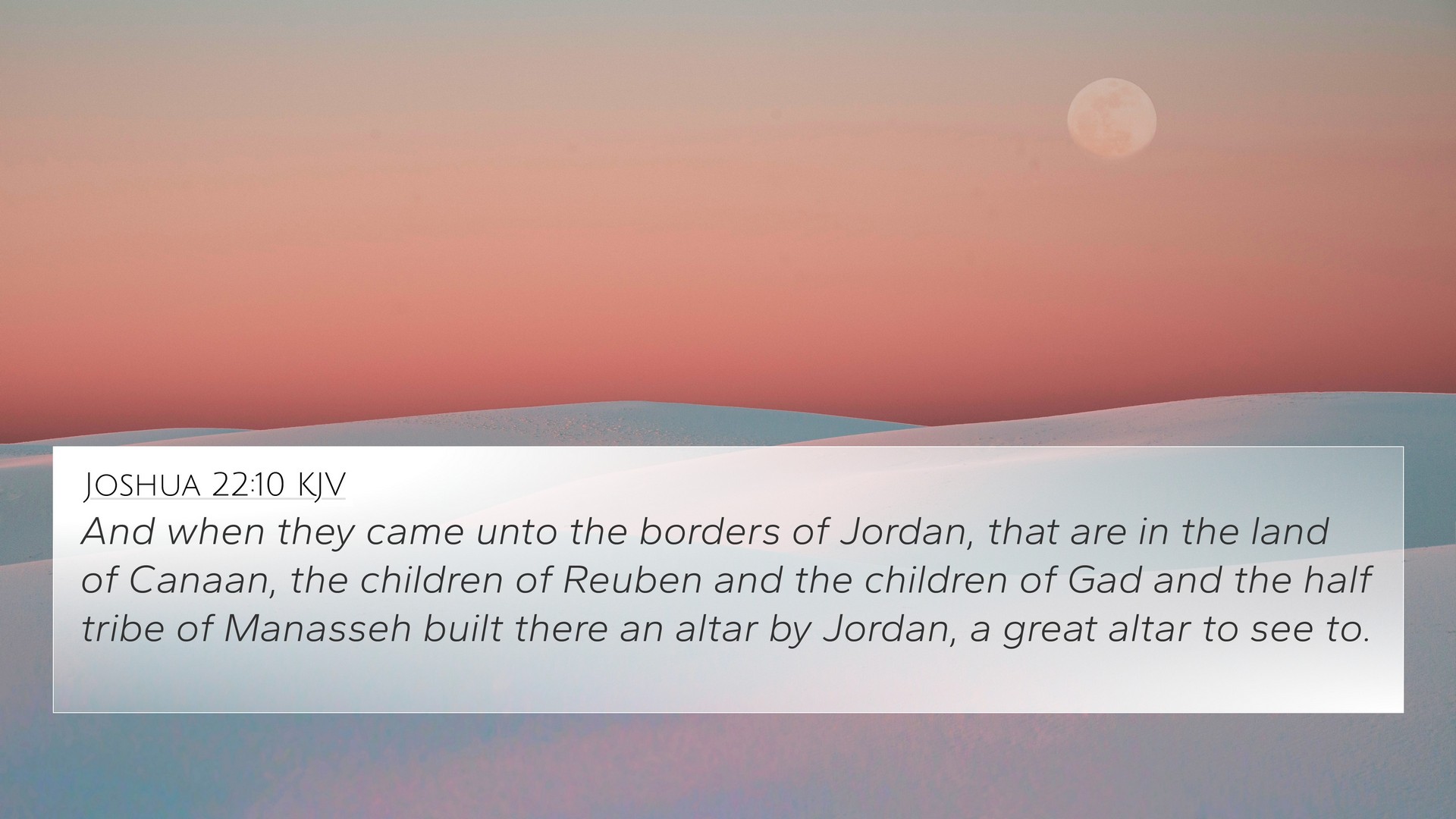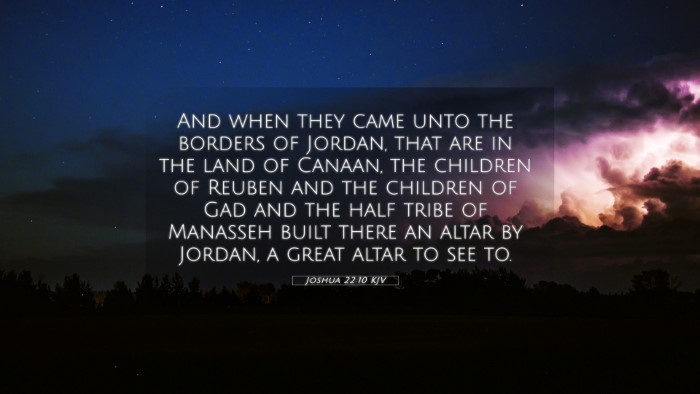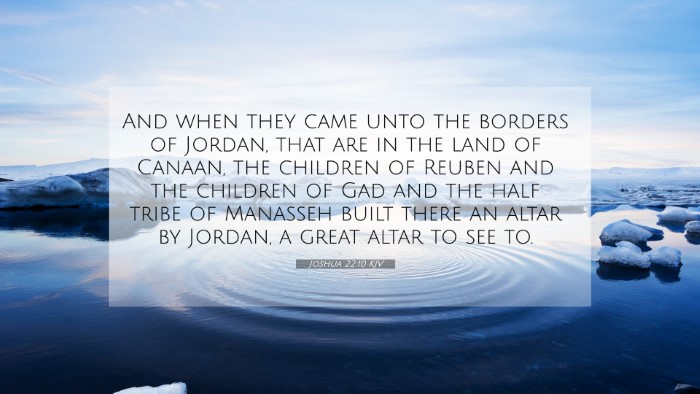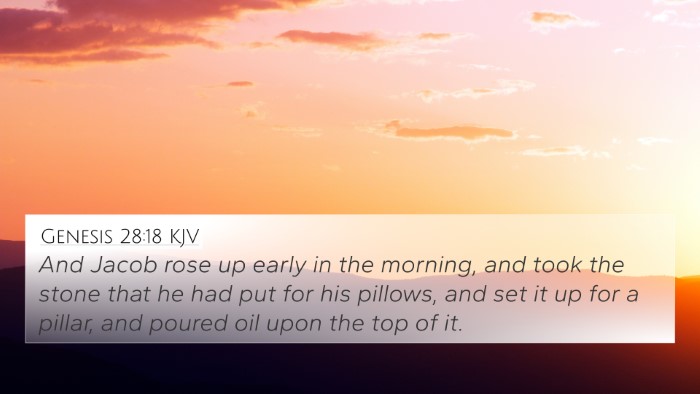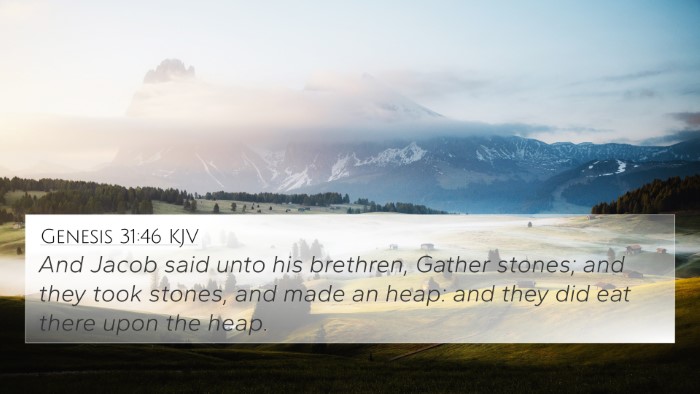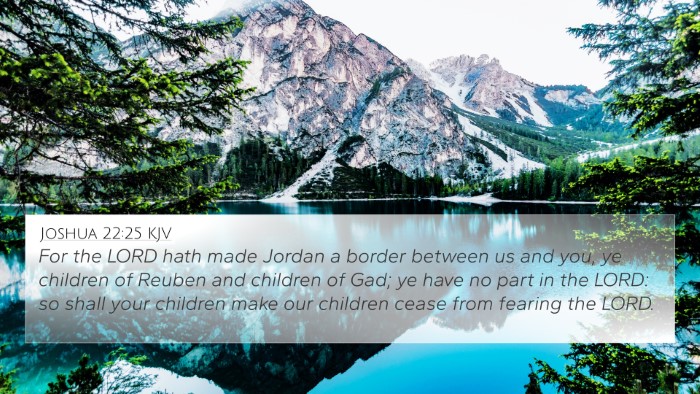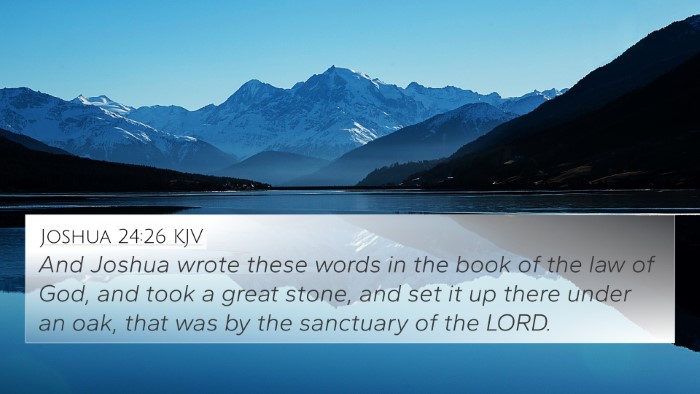Understanding Joshua 22:10
Joshua 22:10 states:
"And when they came unto the borders of Jordan, that are in the land of Canaan, the children of Reuben and the children of Gad and the half tribe of Manasseh built there an altar by Jordan, a great altar to see to."
Summary of Insights
This verse marks a significant moment in the history of the Israelite tribes, particularly the Reubenites, Gadites, and the half-tribe of Manasseh, as they prepare to establish their territory. The building of the altar sets the stage for a deeper understanding of unity, worship, and potential conflict within the community of Israel.
Commentary Insights
-
Matthew Henry:
Henry highlights the importance of the altar as a symbol of worship and community unity. He emphasizes how the altar was built to maintain the worship of God among these tribes, serving as a visible representation of their faith. Henry suggests the altar's significance goes beyond physical structure; it embodies the spiritual commitment of the Israelites.
-
Albert Barnes:
Barnes points out that the construction of the altar may have raised concerns among the other Israelite tribes, suggesting a potential rupture in unity. He emphasizes the necessity for communication and understanding to prevent division and misinterpretation of intentions.
-
Adam Clarke:
Clarke discusses the geographical and cultural implications of the altar. He notes that altars were significant in Israelite worship, and building a "great altar" carries both religious and political implications—indicating an attempt to assert their identity while also reinforcing their commitment to God.
Related Bible Cross-References
To grasp the full depth of Joshua 22:10, it may be insightful to consider the following cross-references:
- Deuteronomy 12:5-14 - Discusses the centralization of worship and altars in Israel.
- Joshua 1:12-15 - Details the allocation of land to the Reubenites, Gadites, and half-tribe of Manasseh.
- Exodus 20:24 - Addresses the construction of altars for worship.
- Numbers 32:16-24 - Describes the negotiation of land and responsibilities by the tribes.
- Joshua 22:11-12 - Follows shortly after the verse in question, detailing the concerns raised by the other tribes.
- Judges 21:19 - Provides insight into the significance of location and worship in Israel.
- Psalms 78:67-69 - Reflects on God's choice of Zion over other locales for worship.
Thematic Connections
This verse illustrates key themes that continue throughout the Scriptures, accentuating:
- **Unity in Worship** - The importance of collective faith.
- **Communication and Community** - How misunderstandings can lead to conflict.
- **Identity and Land** - The connection between belonging, territory, and faith.
Conclusion
Joshua 22:10 serves as a significant spot for reflection on the dynamics within the Israelite tribes, their relationship with God, and the importance of unity among believers. By cross-referencing this verse with others in Scripture, one can deepen their understanding of the responsibilities and commitments expected from the people of God. For anyone seeking to explore the Bible's interconnectedness, this verse demonstrates how themes of worship, community, and obedience play vital roles.
Further Study Suggestions
For those wishing to engage more deeply with Bible cross-references, consider utilizing tools like a Bible concordance or a dedicated Bible cross-reference system. These can aid in identifying connections between Old and New Testament accounts, providing a comprehensive view of the Scriptural narrative.
